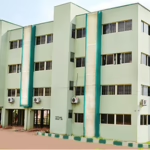NECO to Fully Transition to Computer-Based Exams Starting November/December 2025
The National Examinations Council (NECO) has officially declared that from the November/December 2025 Senior School Certificate Examination (SSCE) External session onward, all exams will be administered exclusively through a computer-based testing (CBT) platform, marking the end of the traditional paper-and-pencil format.
Government’s Vision for Modernized Examination Delivery
Earlier this year, the Federal Government unveiled a strategic plan to integrate privately-operated CBT centres alongside public institution facilities to facilitate the school-based SSCE by 2026. This initiative aims to enhance exam integrity, efficiency, and accessibility nationwide.
NECO’s Preparedness and Call for CBT Centre Operators
In a recent announcement, NECO confirmed its readiness to implement the full migration to computer-based exams starting with the 2025 November/December SSCE External. The Council has invited interested CBT centre operators across Nigeria to register, provided they meet rigorous technical and infrastructural standards.
Technical and Infrastructure Standards for CBT Centres
To qualify as an approved CBT centre, operators must ensure the availability of at least 150 fully operational computers or laptops, with an additional 10% reserved as backup units. These devices must be interconnected via a star topology using a wired Local Area Network (LAN); wireless connections are strictly forbidden to maintain network stability and security.
Each centre is required to utilize gigabit switches with two backup units and maintain robust server infrastructure capable of supporting simultaneous access by all testing devices. Furthermore, all systems must have current antivirus software installed, and display monitors should be no smaller than 15 inches for desktops and 17 inches for laptops to ensure optimal visibility.
Exam Hall and Security Specifications
NECO mandates that every workstation be housed within individual cubicles measuring at least 26 inches in length, 18 inches in width, and 18 inches in height, accompanied by suitable seating arrangements. Centres must also be equipped with functional air conditioning, adequate lighting, and a comprehensive CCTV surveillance system using IP cameras. The use of wireless CCTV or exposed cabling is prohibited; all wiring must be securely trunked to prevent tampering.
Importantly, NECO prohibits the use of temporary or makeshift CBT centres. Only dedicated facilities maintained year-round for computer-based testing will be authorized. Additionally, exam halls must display wall clocks prominently, as candidates will no longer be permitted to wear wristwatches during exams.
Location and Facility Requirements
CBT centres must be situated in standalone premises and cannot operate within shared spaces such as shopping malls, cinemas, or marketplaces. Reliable network connectivity from major providers like MTN or Airtel is essential to support uninterrupted exam delivery.
Facilities must include a backup power generator with a minimum capacity of 40kVA, uninterruptible power supplies (UPS) or inverters capable of sustaining all equipment for at least three hours, internal restroom facilities, a reception or holding area for candidates, and secure fencing with on-site security personnel to safeguard the examination environment.
Personnel Integrity and Staffing Requirements
NECO emphasizes the importance of employing trustworthy and competent staff to oversee the CBT process. Each centre must have a minimum of two technical support personnel and one network engineer, all of whom must demonstrate high integrity to uphold the credibility of the examinations.
Looking Ahead: The Future of NECO Examinations
This transition to a fully digital examination system aligns with global trends in educational assessment, promising enhanced security, faster result processing, and improved candidate experience. As Nigeria embraces this technological advancement, stakeholders are encouraged to prepare accordingly to meet the new standards.























0 Comments